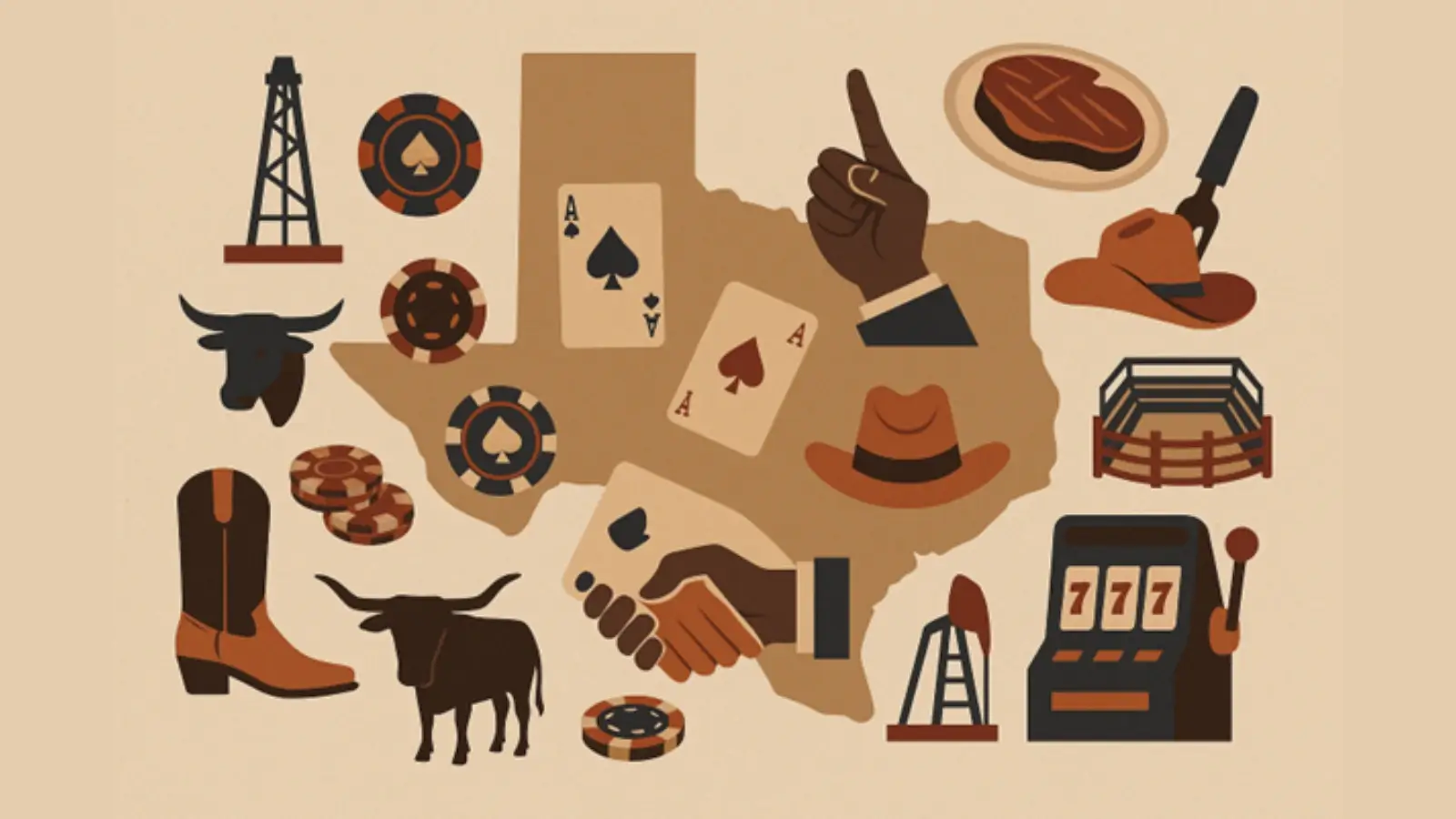Gambling in Texas doesn’t arrive as a cultural outlier. It fits neatly into a long-standing tradition of bold financial choices, where the stakes are personal and the rewards, if earned, are claimed without apology. From land speculation to energy booms, the state has always rewarded those willing to act first and weigh consequences later. Real money gaming operates on that same principle. It favors initiative, self-direction, and belief in one’s odds. In a place where regulation is often secondary to judgment, the instinct to place bets, literal or otherwise, remains a defining part of how Texans pursue risk and reward.
Independence as Currency
Texas has never waited for an outside authority to decide what’s acceptable. From refusing federal mandates on energy production to crafting its own rules on education and property taxes, the state has a long history of pushing back against systems imposed from beyond its borders. This isn’t political theater but an operational mindset. Control is expected to reside locally, and when possible, individually.
That same resistance to centralized control helps explain why platforms offering Texas real money games, with full cash play, loyalty rewards, and flexible deposit options, continue to attract players across the state despite the lack of uniform regulation. The draw isn’t just about entertainment. It’s about acting freely within systems that don’t ask for approval before offering access. That’s why Texans don’t adopt systems. They choose them.
The Big Win Obsession
In Texas, the idea of gambling is not tied to fantasy or escape. It fits into a broader, older tradition of putting something personal on the line with full awareness of the consequences. This way of thinking doesn’t treat risk as a danger to avoid, but as a calculation worth making when the reward is high enough. The logic that drives someone to place a wager in a casino is often the same logic that once pushed oil rigs into unstable ground and sent cattle north with no guarantee of return.
The obsession with high-stakes wins makes more sense when viewed through the lens of completely accurate Texas stereotypes, typically being that people in Texas go big on everything. Again, roots to this can be found in the fact that Texas is the largest state in land mass in the lower 48, where driving east to west takes as long as crossing ten states from Maine to North Carolina, and where a 72-ounce steak challenge is considered normal.
The same appetite for scale appears today in gambling behavior. Texans routinely travel to neighboring states to place legal sports bets and represent one of the largest player bases for online sweepstakes casinos. In these games, it’s possible to convert modest purchases into four- or five-figure wins, and many users pursue that possibility with the same comfort and confidence they apply to business or land investment.
Where Law Stalls, Innovation Rushes In
Frameworks change, lobbies force, but Texas remains still. When it comes to formal gambling laws, Texas is one of the most restrictive states in the country. There are no commercial casinos, no state-regulated sportsbooks, and no legal online casino industry. Yet, this absence is not the result of oversight or neglect, but the outcome of a deliberate pace that values control and tradition over reactive reform. In many areas of law, including gambling, change does not arrive simply because it has happened elsewhere.
In practical terms, this means that under gambling laws in Texas, placing a private bet on a sports game carries a Class C misdemeanor charge and up to a $500 fine, while in New Jersey, the same activity is performed via a licensed app with full legal protection, no criminal risk and even prospects to win serious money.
Still, restrictions haven’t stopped participation. Texans turn to sweepstakes and crypto casinos not because they are hidden, but because they offer something familiar: clear terms, immediate access, and no unnecessary oversight. These platforms reward decisiveness, not compliance, and that fits a mindset built on solving problems without waiting for rules to catch up. When official channels delay, Texans don’t pause. They reroute and continue playing on their terms.
The Bet as Self-Measurement
Whatever gambling may be about in other states, in this one, it rarely wears the label of entertainment. When Texans place a real money bet on a poker hand or sports outcome, they are not looking just for a payout. The whole point is to call the shot and see where it lands. The wager becomes a way to measure judgment, timing, and nerve. In a culture that values individual instinct over collective approval, betting serves a function closer to self-audit than escape.
This isn’t swagger for its own sake. It's the belief that decisiveness should have consequences, the old American way, and that making the right move under pressure should be rewarded. The outcome matters, but so does the act of risking something real to confirm what you already believed. That’s not recklessness. It’s personal accounting, done at full speed.

















